The construction industry in the Maldives relies on a variety of materials for building and infrastructure projects. Here are some common materials used in construction in the Maldives:
- Concrete: Concrete is a fundamental building material used in construction projects in the Maldives. It is used for foundations, columns, beams, slabs, and other structural elements. Ready-mix concrete is commonly used for its strength, durability, and versatility in construction applications.
- Steel: Steel is widely used in construction for reinforcement of concrete structures, framing, roofing, and other applications. It provides strength, flexibility, and resistance to corrosion, making it an essential material for building construction in the Maldives.
- Bricks and blocks: Bricks and concrete blocks are commonly used in masonry construction for walls, partitions, and facades. They are durable, fire-resistant, and provide thermal insulation, making them suitable for residential, commercial, and industrial buildings in the Maldives.
- Timber: Timber is used for structural framing, roofing, flooring, and finishing elements in construction projects. Locally sourced timber species, such as coconut palm wood and hardwoods, are used for their strength, sustainability, and aesthetic appeal in traditional and modern architecture in the Maldives.
- Roofing materials: Roofing materials such as corrugated metal sheets, concrete tiles, thatch, and synthetic roofing materials are used in construction to provide weather protection, insulation, and durability. Different roofing materials are chosen based on climate conditions, design preferences, and building requirements in the Maldives.
- Glass: Glass is used for windows, doors, facades, and interior partitions in construction projects to provide natural light, ventilation, and aesthetic appeal. Energy-efficient glass, tinted glass, and insulated glass are used to enhance thermal comfort, reduce energy consumption, and improve building performance in the Maldives.
- Waterproofing materials: Given the island nature of the Maldives and the risk of water intrusion, waterproofing materials such as membranes, coatings, sealants, and drainage systems are essential for protecting buildings from moisture damage, leaks, and flooding. Proper waterproofing is critical for ensuring the longevity and integrity of structures in the Maldives.
- Sustainable and eco-friendly materials: With a focus on sustainability and environmental conservation, the construction industry in the Maldives is increasingly using eco-friendly materials such as recycled aggregates, bamboo, coconut fiber, and sustainable composites. These materials help reduce carbon footprint, promote resource efficiency, and support green building practices in the Maldives.
Overall, a combination of traditional materials, modern construction technologies, and sustainable building practices is used in construction projects in the Maldives to meet the country’s unique environmental conditions, architectural styles, and development needs. The selection of materials is guided by factors such as durability, cost-effectiveness, sustainability, and compliance with building regulations and standards in the Maldives.
